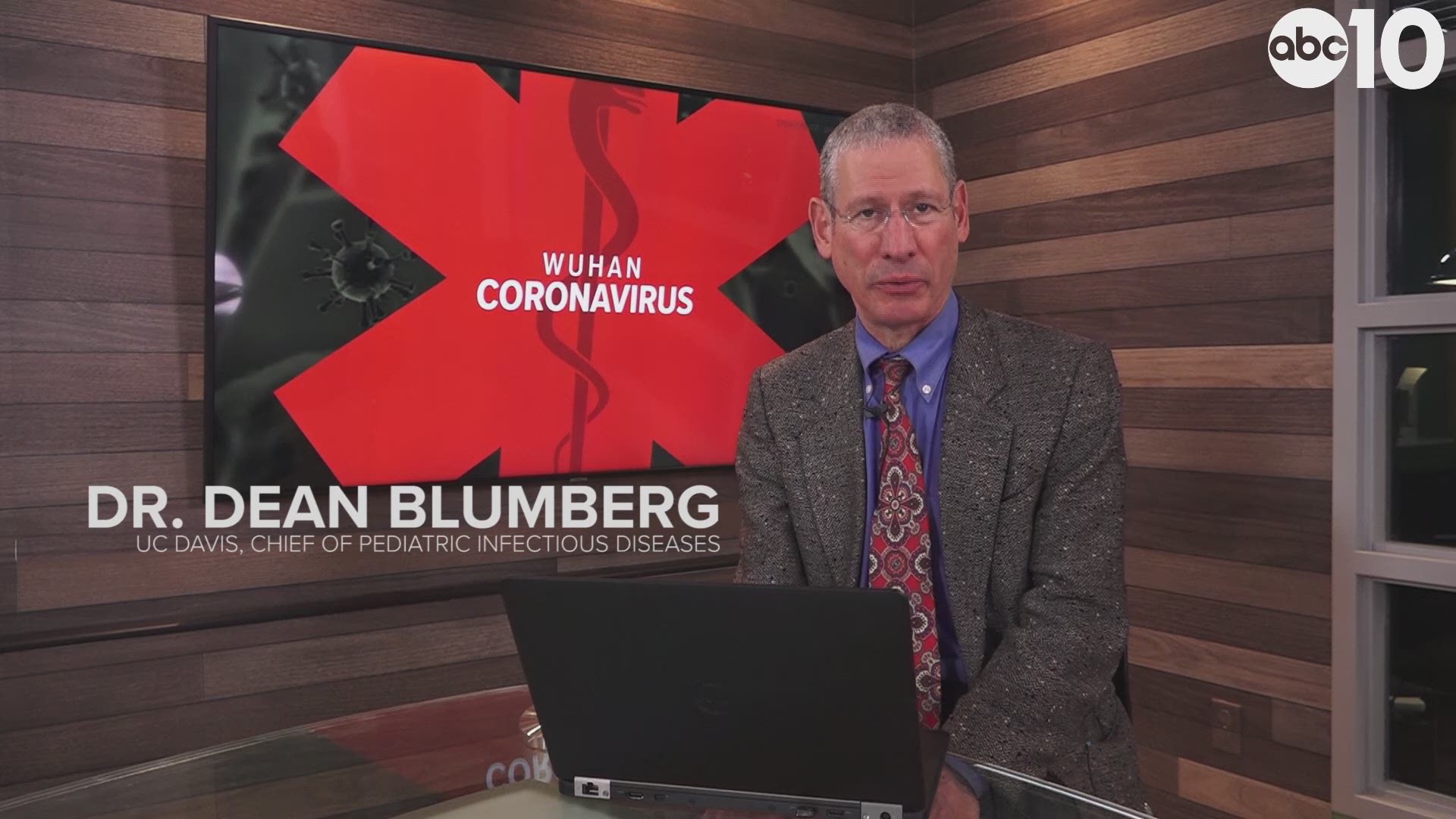SACRAMENTO, Calif. — Two planes carrying about 350 Americans fleeing the coronavirus zone in China landed in at Travis Air Force base in California. Another plane carrying more passengers is expected to land to refuel Friday morning before heading to Omaha, Nebraska.
As of Thursday, Feb. 6, the World Health Organization has confirmed 28,276 cases of the virus globally, a vast majority of which were in China, the epicenter of the novel coronavirus.
But with only 12 confirmed cases in the U.S., health officials are insisting there is no large threat to people in America. Instead, they are cautioning Americans to be as careful as they would in preventing the common flu.
ABC10 spoke with two health experts to answer frequently asked questions to help clear the air about the coronavirus.
Sacramento Health Services Director Dr. Peter Beilenson and Dr. Dean Blumberg, the Chief of Pediatric Infectious Diseases at UC Davis Children’s Hospital, spoke to ABC10 about how the coronavirus spreads and why the disease has been so deadly.
Q: Can the coronavirus cause infection by being airborne?
"Yes, it is aerosolized," Beilenson said.
Q: Why are so many people dying from this virus? What does this virus do to the body?
Benilenson said experts are not sure, but it acts similar to the flu. Mostly, the elderly and those who are chronically ill are the ones who are dying from the outbreak.
The mortality rate is probably not as high as it appears, because it is highly likely that a lot of those who are sick are not reporting it, Beilenson said.
Q: I have a co-worker who recently traveled and returned from China (Beijing and Nanjing) last week. My co-worker returned to work recently and is asymptomatic at this time. Should I be worried?
"Those are low-risk areas in China," Blumberg said. "The Centers for Disease does not provide clear guidance on this."
Some businesses are requesting any traveler from China to stay at home for two weeks after returning. As long as they do not show symptoms, chances of transmitting the virus are exceedingly low, Blumberg said.
Q: So if the Coronavirus is so dangerous, why is the flu shot still being pushed since it lowers immunities for 5-7 days and one catches anything they come in contact with? Makes no sense.
The influenza vaccine protection typically lasts for the whole season, which is about five to six months, Blumberg said. The flu shot does not lower immunity, but it takes one to two weeks to develop immunity after receiving the shot.
Q: I will be traveling to Thailand next week. Should I be concerned?
Blumberg said that Thailand is close to China, so it is likely there have been travelers going back and forth between the two counties. However, the majority of cases occurred in China. The state department did not issue any travel restrictions to countries other than China at the moment.
Blumberg recommends keeping checking in on the news because travel restrictions could change.
Q: What hospital will be used in case medical attention is needed from the Travis Air Force Base?
Likely, the patients who are at Travis Air Force Base would be treated at a local hospital. Those who are sick and need more specialized care would be transferred to either Sacramento or the Bay Area, Blumberg said.
Q: With so many imports from China, is there a chance the coronavirus spread from someone that has the virus and is loading cargo?
Blumberg said that anything is possible, but he doesn't think touching cargo is a risk.
Q: How long does the virus survive on surfaces?
The depends on the temperature and humidity, Blumberg said. Under normal conditions, the infectivity likely drops over a day or two.
READ MORE ON ABC10:

